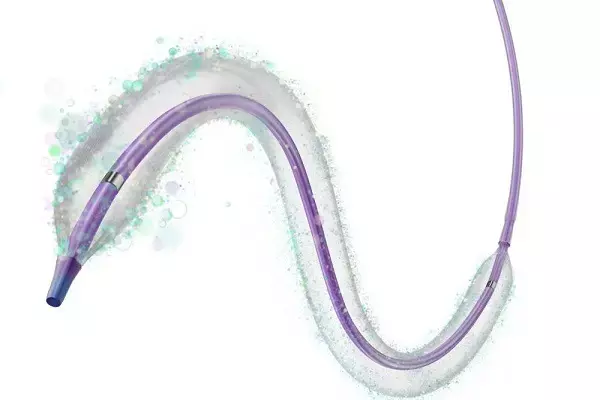- Home
- Medical news & Guidelines
- Anesthesiology
- Cardiology and CTVS
- Critical Care
- Dentistry
- Dermatology
- Diabetes and Endocrinology
- ENT
- Gastroenterology
- Medicine
- Nephrology
- Neurology
- Obstretics-Gynaecology
- Oncology
- Ophthalmology
- Orthopaedics
- Pediatrics-Neonatology
- Psychiatry
- Pulmonology
- Radiology
- Surgery
- Urology
- Laboratory Medicine
- Diet
- Nursing
- Paramedical
- Physiotherapy
- Health news
- Fact Check
- Bone Health Fact Check
- Brain Health Fact Check
- Cancer Related Fact Check
- Child Care Fact Check
- Dental and oral health fact check
- Diabetes and metabolic health fact check
- Diet and Nutrition Fact Check
- Eye and ENT Care Fact Check
- Fitness fact check
- Gut health fact check
- Heart health fact check
- Kidney health fact check
- Medical education fact check
- Men's health fact check
- Respiratory fact check
- Skin and hair care fact check
- Vaccine and Immunization fact check
- Women's health fact check
- AYUSH
- State News
- Andaman and Nicobar Islands
- Andhra Pradesh
- Arunachal Pradesh
- Assam
- Bihar
- Chandigarh
- Chattisgarh
- Dadra and Nagar Haveli
- Daman and Diu
- Delhi
- Goa
- Gujarat
- Haryana
- Himachal Pradesh
- Jammu & Kashmir
- Jharkhand
- Karnataka
- Kerala
- Ladakh
- Lakshadweep
- Madhya Pradesh
- Maharashtra
- Manipur
- Meghalaya
- Mizoram
- Nagaland
- Odisha
- Puducherry
- Punjab
- Rajasthan
- Sikkim
- Tamil Nadu
- Telangana
- Tripura
- Uttar Pradesh
- Uttrakhand
- West Bengal
- Medical Education
- Industry
Drug-coated devices as good as NCDCs for endovascular treatment of PAD: JAMA study

Drug-coated devices (DCDs) are non-inferior to Non- drug-coated devices (NCDCs) in respect to mortality in femoropopliteal endovascular treatment, suggests a study published in the JAMA Internal Medicine.
Paclitaxel-coated peripheral devices have been linked with increased mortality, yet this harm signal has not been replicated outside of meta-analyses of small trials.
A group of researchers from Boston, Massachusetts, U.S.A. conducted a study to provide a longitudinal assessment of the safety of femoropopliteal endovascular treatment with peripheral drug-coated devices (DCDs) among Medicare beneficiaries.
The researchers designed a retrospective cohort study named SAFE-PAD (Safety Assessment of Femoropopliteal Endovascular Treatment with Paclitaxel-Coated Devices) in association with the US Food and Drug Administration to evaluate the noninferiority of mortality between DCDs and non–drug-coated devices (NDCDs) for femoropopliteal revascularization performed in 2978 inpatient and outpatient facilities in the U.S.A from April 1, 2015, through December 31, 2018.
Participants were Medicare fee-for-service beneficiaries 66 years and older with 1 or more years of enrolment prior to femoropopliteal revascularization. Of 168 553 patients, 70 584 were treated with a DCD. The Median follow-up was 2.72 years.
Sensitivity analyses were used to evaluate the potential influence of unmeasured confounding.
The results of the study are as follows:
- After weighting, the cumulative incidence of all-cause mortality was 53.8% with DCDs and 55.1% with NDCDs.
- Cox regression and instrumental variable analyses were consistent with the primary findings.
- No harm associated with DCDs was observed among subgroups, including those treated with stents or balloons, with or without CLI; and those within the lowest quartile of total comorbidities.
The researchers concluded that through this initial report from the SAFE-PAD cohort study, Drug-coated devices (DCDs) were found to be non-inferior to Non- drug-coated devices (NCDCs) in respect to mortality through a median follow-up of 2.72 years. This finding remained robust in sensitivity analyses and was consistent across prespecified subgroups.
Reference:
Longitudinal Assessment of Safety of Femoropopliteal Endovascular Treatment with Paclitaxel-Coated Devices Among Medicare Beneficiaries: The SAFE-PAD Study by Secemsky, E et. al published in the JAMA Intern Med.
doi:10.1001/jamainternmed.2021.2738
Dr. Shravani Dali has completed her BDS from Pravara institute of medical sciences, loni. Following which she extensively worked in the healthcare sector for 2+ years. She has been actively involved in writing blogs in field of health and wellness. Currently she is pursuing her Masters of public health-health administration from Tata institute of social sciences. She can be contacted at editorial@medicaldialogues.in.
Dr Kamal Kant Kohli-MBBS, DTCD- a chest specialist with more than 30 years of practice and a flair for writing clinical articles, Dr Kamal Kant Kohli joined Medical Dialogues as a Chief Editor of Medical News. Besides writing articles, as an editor, he proofreads and verifies all the medical content published on Medical Dialogues including those coming from journals, studies,medical conferences,guidelines etc. Email: drkohli@medicaldialogues.in. Contact no. 011-43720751


